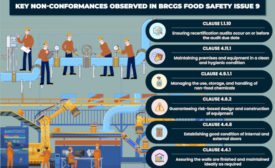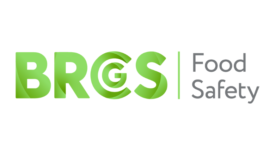Home » Keywords: » audits
Items Tagged with 'audits'
ARTICLES
Sponsored Content
Non-Conformances & Trends in BRCGS Food Safety Issue 9: Lessons Learnt Over the Past Year
April 8, 2024
The Inputs and Outputs of Vendor Certification Food Safety and Regulatory Requirements
Vendor certification is paramount for ensuring that companies are adhering to food safety and regulatory requirements
April 21, 2022
Advanced Technology for Improving Virtual Audits and Inspections
Technology advances continue to enhance remote evaluations, but the format must overcome inevitable challenges
April 18, 2022
Never miss the latest news and trends driving the food safety industry
eNewsletter | Website | eMagazine
JOIN TODAY!Copyright ©2024. All Rights Reserved BNP Media.
Design, CMS, Hosting & Web Development :: ePublishing







.png?height=168&t=1652234004&width=275)


.png?height=168&t=1645023208&width=275)
